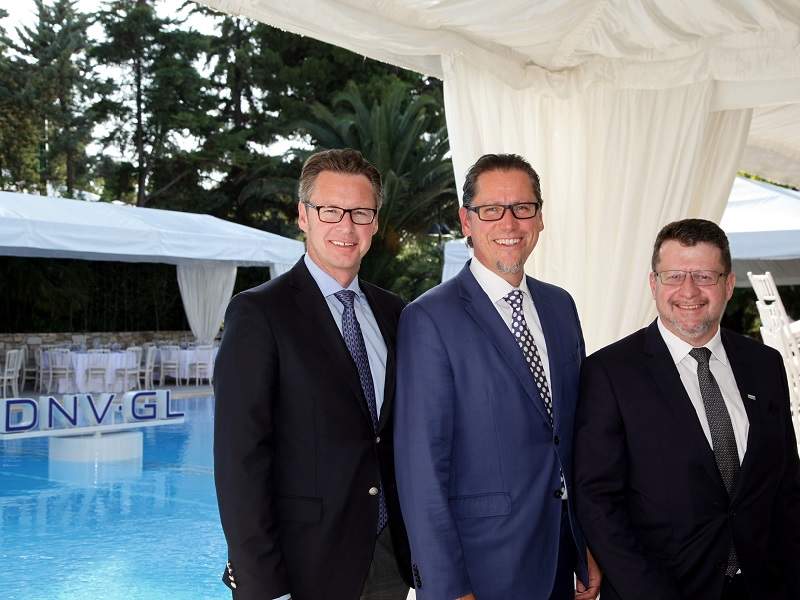
Representatives from global quality assurance and risk management company DNV GL have discussed some of the most crucial trends in the maritime market ahead of the Posidonia 2018 trade fair taking place in Athens this week.
Speaking at the preliminary press conference, Knut Ørbeck-Nilssen, CEO of DNV GL – Maritime, said the classification society is acquiring an increasingly crucial role, enabling innovation in ship building, guiding owners and operators through a demanding regulatory landscape, and helping the industry tackle cybercrime.
DNV GL Group President and CEO Remi Eriksen joined in the conversation, claiming that decarbonisation and digitalisation are having a considerable impact on the maritime industry. On the issue of decarbonisation, Eriksen said: “The IMO strategy announced last month targets a 50% carbon reduction. This is ambitious but not unachievable. We see some companies leading the way, and more efficient ship designs and better ship utilisation will propel this.”
He also highlighted the importance of digitalisation in the maritime industry, claiming it is about “connecting the hardware with services, with people and with other data streams to build better ways of doing business”.
Eriksen added: “The key to unlocking the value that industrial data holds is trust. We see significant interest and demand for our open industry data platform, Veracity, from the maritime, oil and gas, and energy sectors. It is now closing in on a million service subscriptions from 1,500 different companies.”
During the press conference, Ørbeck-Nilssen noted that the shipping market is currently resting at the bottom of a cycle and expects to see a modest upward growth in the next few months. He added that European shipyards have been experiencing a renaissance trying to specialise in the construction of high technology vessels.
How well do you really know your competitors?
Access the most comprehensive Company Profiles on the market, powered by GlobalData. Save hours of research. Gain competitive edge.

Thank you!
Your download email will arrive shortly
Not ready to buy yet? Download a free sample
We are confident about the unique quality of our Company Profiles. However, we want you to make the most beneficial decision for your business, so we offer a free sample that you can download by submitting the below form
By GlobalDataWithin this framework, he suggested that decarbonising shipping would not have short-term impacts on specific ships, and that concrete policy measures and the development of an action plan by the IMO would be needed. Ørbeck-Nilssen said: “The 50% reduction goal will likely call for a widespread uptake of zero-carbon fuels, in addition to other energy efficiency measures.
“These fuels are not existing today and there needs to be a concerted effort towards developing these and making them available in the necessary quantity. In classification, working with the industry to create a safe and sustainable future is at the heart of what we do. We look forward to working closely with the IMO and the wider maritime community to reach this goal.”
Although increasing digitalisation has brought a number of benefits to the industry, Ørbeck-Nilssen claimed that it is not without challenges, the most important one being cybercrime. “We see our industry being more exposed with cyber-attacks migrating from the IT world to operational technology, increasing the risk for shipping. To help the industry to tackle those risks, we have put cyber security high on our agenda,” he said.
DNV GL is to publish its first cybersecurity class notations next month in a bid to help players in the industry tackle the growing threat posed by cybercrime.



